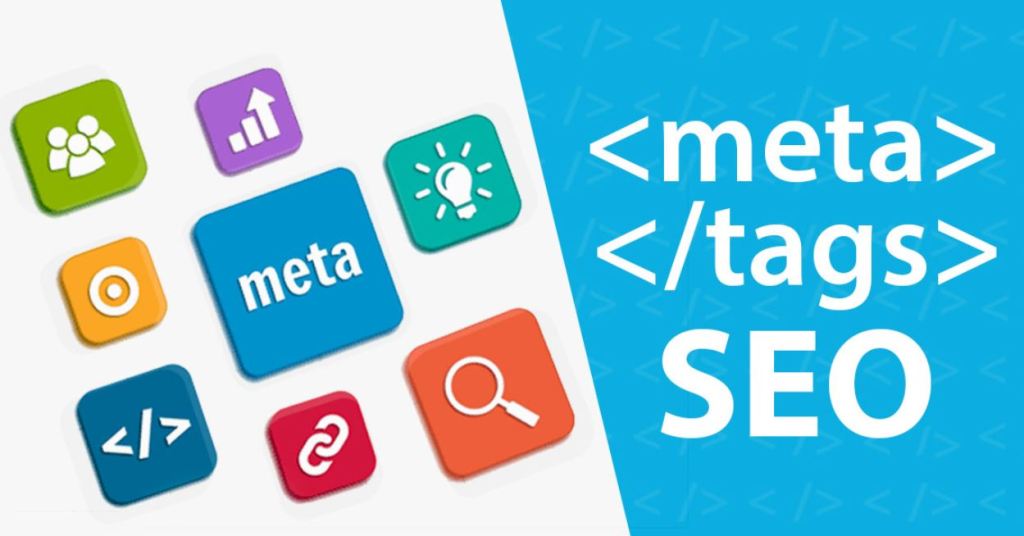SEO meta tags are a vital part of any website’s on-page optimization strategy.
Meta tags provide information about a web page to search engines and web users. This information includes the page title, description, keywords, and other metadata.
While meta tags don’t directly affect a website’s ranking in search results, they are still important because they can help improve click-through rates (CTRs). A high CTR means that more people are finding your website useful and relevant to their search query, which can eventually lead to better rankings.
There are two types of SEO meta tags: those that only impact humans (like the page title and description), and those that also impact search engine crawlers (like the keyword meta tag).
What Are SEO Meta Tags?
Meta tags are a type of HTML tags that provide information about a web page. They are used by search engines to help index and rank a page. The most important meta tags for SEO are the title tag, meta description, and keywords.
The title tag is the most important meta tag for SEO. It tells search engines what the page is about. The meta description is a short description of the page. It appears in search engine results pages (SERPs) below the title. The keywords meta tag is a list of keywords that relate to the page content.
Meta tags are important for SEO because they help search engines understand what a page is about. They can also influence click-through rates from SERPs.
What Have Included SEO Meta Tags?
There are four main types of meta tags: title tags, meta descriptions, and meta keywords. Each type of tag serves a different purpose and should be used accordingly.
Title tags are perhaps the most important type of meta tag. As the name suggests, title tags tell search engines what the title of your page is. This is important because it helps search engines understand what your page is about and helps them index it properly.
Meta descriptions are a snippet of text that is shown under your page title in SERPs. They’re not as important as title tags, but they do help make your results stand out from the crowd.
Meta keywords are used to tell search engines what your page is about. They are not used for ranking but can help your results show up in the related searches section.
They’re also useful for ensuring that you don’t end up competing with yourself for search engine rankings. The only problem is Google and other search engines don t use them anymore.
How To Optimize Your SEO Meta Tags:
The title tag is the name of your page and should be a brief, accurate description of its contents. The meta description is a short summary of the page that appears below the title in search results. Both the title and meta description are important places to use keywords that you want to rank for.
To optimize your SEO meta tags, make sure your title tag is no more than 60 characters long and includes one or two keywords that accurately describe the content of your page. For the meta description, keep it under 155 characters and again include one or two relevant keywords.
Create A Compelling Headline For Meta Title:
Your meta title is one of the most important elements of your website when it comes to SEO. That’s because your title is what appears in the search engine results pages (SERPs), and it’s what encourages people to click through to your site.
Creating a compelling headline for your meta title is essential if you want to improve your click-through rate (CTR). Here are some tips for writing an effective meta title:
1. Keep it short and sweet: A good rule of thumb is to keep your meta title under 60 characters. This ensures that your entire title will be visible in the SERPs, and it won’t get cut off.
2. Use keyword-rich phrases: In order to rank high in the SERPs, you need to include relevant keywords in your meta title. But beware of keyword stuffing!
Include Call To Action in Meta Description:
If you’re running a website, it’s important to make sure that your meta descriptions include a call to action. A call to action is a short, persuasive message that encourages readers to take a specific action, such as clicking through to your website or making a purchase. Including a call to action in your meta description can help increase click-through rates and conversions.
Here Are Some Tips For Writing Effective Calls To Action:
1. Keep It Short And Sweet:
A call to action should be brief and to the point. It should be easy for readers to understand what they need to do.
2. Make it Relevant:
The call to action should be relevant to the content of your page. For example, if you’re selling products on your website, your call to action could be something like “Buy now!” or “Shop today!” rather than “Click here!” or “Visit our store!”
3. Include Urgency:
Urgency can be a good way to encourage readers to convert. For example, you could write something like: “Only 5 left in stock” or “Offer ends today.
Conclusion:
When it comes to SEO meta tags, there are a few key things you need to know. First and foremost, your meta tags should be unique to each page on your website. In other words, don’t use the same title and description for every page. Secondly, make sure your tags are relevant to the content on the page. And lastly, keep your tags short and to the point.
While there are other factors that contribute to a good SEO strategy, these meta tags are a great place to start. By following these simple tips, you can ensure that your website is off to a good start in terms of search engine optimization.
Hope you get some valuable information about meta tags. If you like it, please help me share it with other readers too. I’d much appreciate it. If you have any problems with meta tags, please leave me a message below, and I will reply to you. Thank you for reading.

